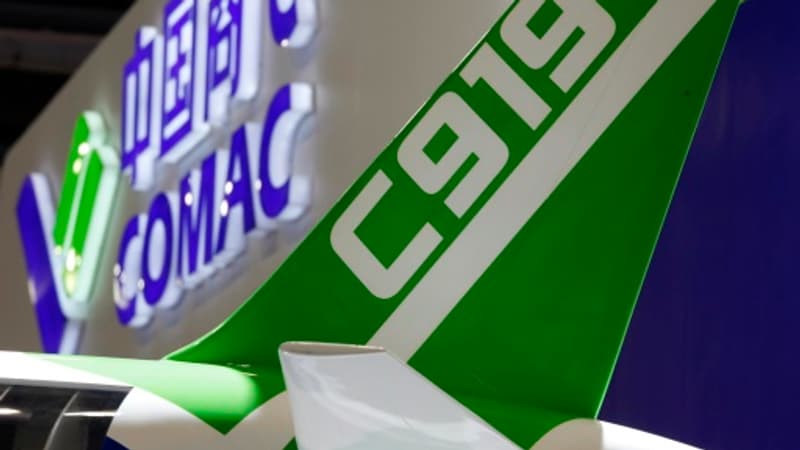The C919, the first medium-haul aircraft made in China, has been certified by Chinese regulators after 12 years of development and 5 years of testing, local media reported, with operations scheduled to start in early 2023.
The plane, built by state-owned aircraft manufacturer Comac (Commercial Aircraft Corporation of China), was given the green light during an official ceremony at Beijing airport on Thursday, according to media reports and photos posted on social media.
The single aisle symbolizes China’s efforts to develop its own commercial aircraft to shake up the Airbus/Boeing duopoly. Until now, Comac only offered regional aircraft.
The C919 is a short-medium range aircraft capable of transporting 158 to 174 passengers over 4,075 kilometres, it would compete directly with the popular A220 and Airbus A320 and Boeing 737.
Proudly displaying the Chinese flag, this device is largely made up of Western parts, in particular its engines (the Leap-1C) made by the French-American consortium CFM International, made up of General Electric and Safran.
China Eastern Airlines, the country’s second largest airline by number of passengers, will be the first airline to fly the plane on domestic and international routes. The giant has ordered five devices from the Chinese manufacturer for entry into service in the first quarter of 2023.
Already 815 orders in China
Could the arrival of the C919 raise fears of losing market share for the European aircraft manufacturer, especially in China, the second largest in the world?
National companies show their support for this model of local production. Comac claims to have received a total of 815 orders from 28 companies, although it has not yet received the green light from US and European regulators and still needs another authorization to enter mass production.
Guest of BFM Business at the end of July, Guillaume Faury, CEO of Airbus, shows a certain serenity but in no way underestimates this new adversary.
“In fact, we will have a new player in the market. We have already had other attempts in the past by other manufacturers to shake the competition from Airbus/Boeing in the short and medium haul segment. Actor that we take very seriously”, emphasizes the leader.
“They have a somewhat captive market where they can start selling, putting these aircraft into service, so we will be very attentive to what happens with Comac”, underlines Guillaume Faury.
However, “it will take a long time for them to pick up the pace, the reliability of the aircraft to be able to be one of the three players, knowing that today it is Boeing and Airbus that dominate to a large extent,” he continues. .
For the CEO, Airbus has all the weapons to preserve its positions. “We have an American competitor that is historically very strong. Today we overcome them, that shows that things can change. We believe that the best way out is to continue investing, to continue innovating and in particular in the field of decarbonisation of the sector.”
A space left by Boeing
Especially since Boeing no longer smells of sanctity in Beijing. First for political reasons. as a result of trade tensions between Washington and Beijing. Thus, China no longer balances its orders between the two aircraft manufacturers as it traditionally did and restricts its orders to the American giant.
So the Chinese authorities are scalded by the Crash of a Boeing 737-800 of China Eastern Airlines last March near the city of Wuzhou, in the Guangxi region. All 132 people on board died.
In March 2019, the country was also the first in the world to order its companies suspend flights 737 MAX aircraft for security reasons. And it had been the last major country to lift the flight ban on this device.
Since then, the group has had to content itself with delivering to China a handful of cargo planes and some planes ordered by leasing companies.
At the same time, several Chinese companies have ordered more than 300 aircraft from Airbus since the beginning of the year. In July, Boeing said it was optimistic about a new delivery authorization to China this year.
Source: BFM TV


